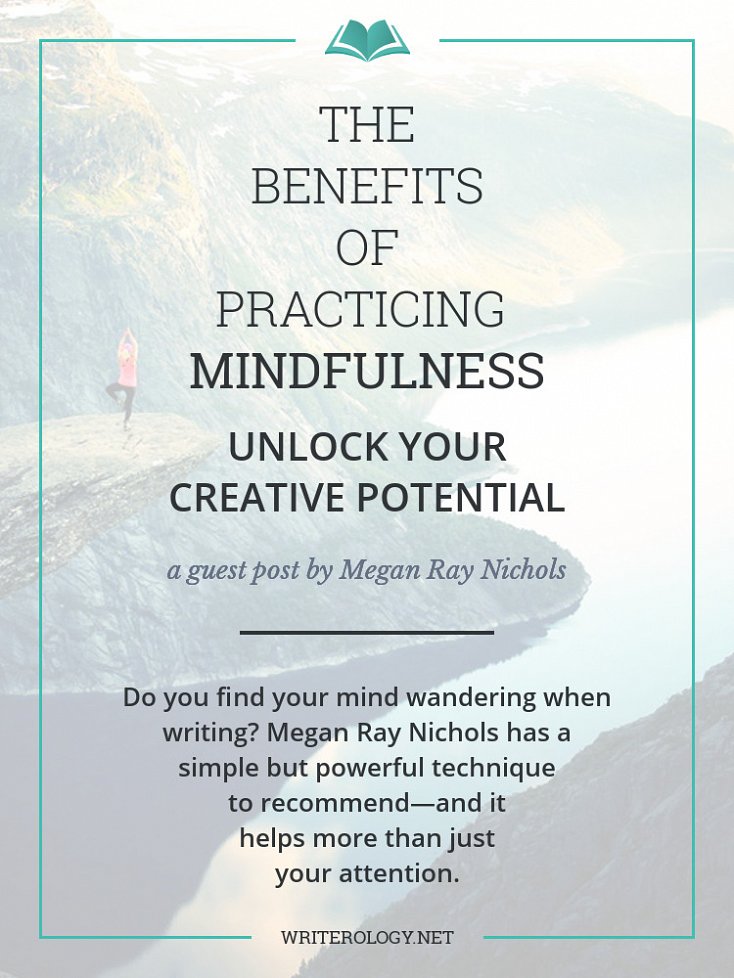The Benefits of Practicing Mindfulness
Do you find your mind wandering when writing? My guest today, Megan Ray Nichols, has a powerful technique to recommend—and it helps more than just your attention. Take it away, Megan!

Although you may have heard about the various benefits of practicing mindfulness, like stress relief and improved well-being, you may not have specifically considered how a mindful lifestyle could make you a better writer.
Let’s take a look at several of the potential advantages below.
Benefit 1:
Unleash More Creativity
If people put too much thought into their creative processes, they sometimes end up stifling creativity, whether because of fear, doubt or some other perceived obstacle. Mindfulness encourages staying focused on the present, which could theoretically help you use existing creativity rather than worrying about potential future- or past-related reasons why you shouldn’t be as creative as possible.
Benefit 2:
Focus More Thoroughly on the Task at Hand
Many people begin a mindfulness practice because they want to concentrate better in high-stress environments and not be distracted by secondary feedback. Mindfulness may help you get more writing done in less time because you’ll eventually learn to tune out whatever’s going around you and just let the words flow freely.
Benefit 3:
Feel More Inspired By Your World
Many people practice mindfulness while doing ordinary tasks such as walking. During the process, they usually train themselves to become more aware of things they might otherwise ignore, such as the sound of their footsteps, the feeling of their breath moving through their nostrils and the sun’s warmth on their skin. Mindfulness usually causes you to become more aware of your surroundings, and hopefully, more appreciative of them.
If you’ve been struggling with writer’s block or just aren’t feeling inspired to pursue your next writing project, mindfulness could have a renewing effect. By being mindful as you complete everyday tasks, you’ll more easily see the beauty and inspiration in details other people take for granted.
Benefit 4:
Become a More Attentive Self-Editor
Even if you have the luxury of being able to submit your work to an editor for the final check, there’s a good chance you still do a fair amount of editing yourself. Otherwise, your work might look sloppy, and you’d risk not getting your point across very clearly.
The better you become at mindfulness, the easier it will be to edit your work efficiently, yet carefully. That’s because you’ll get more in tune with your attention level and quickly notice if it’s slipping.
Benefit 5:
Stop Overanalyzing
Although being critical of your work is often a good trait, you can easily get overzealous and even start feeling you’re not such a good writer after all. If you find this happens a lot, coach yourself to look at your work in a different way by not being so concerned with the minute details, but trying to feel the heart and soul of what you’ve written.
There’s a lot more to good writing than just technical merit, and if you can let a strong inner voice shine through the work, you’ve already achieved something admirable. During mindfulness, people often get caught in a trap where they fixate on a single, troublesome thought. However, they can usually come back to the present by concentrating on their breathing, uttering an empowering phrase or participating in another habit that makes them cease dwelling on whatever thought was dominating their headspace.